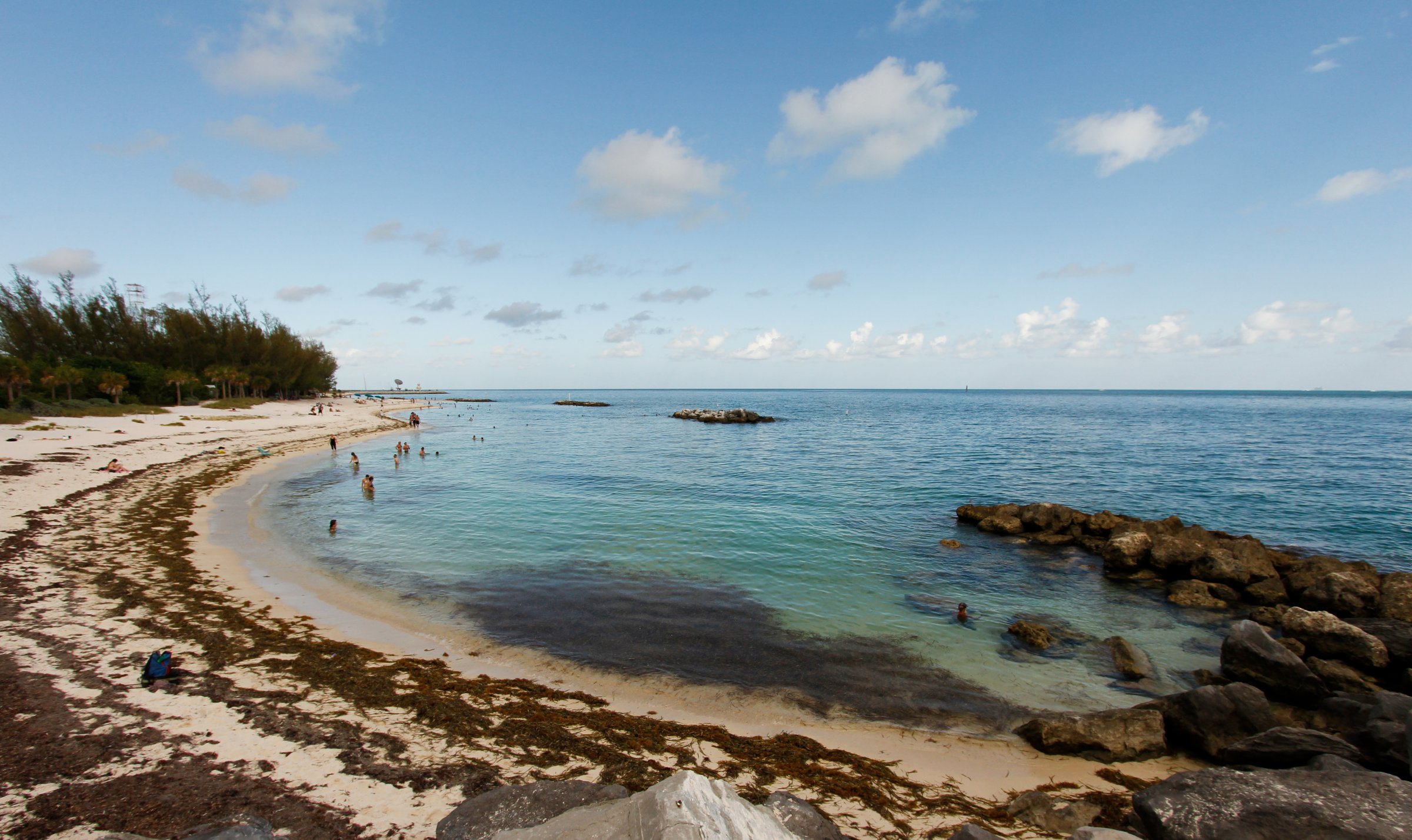
Key West beachgoers will soon be banned from buying sunscreens containing two common ingredients, in an effort to protect the Great Florida Reef.
The Key West City Commission voted on Tuesday to forbid the sale of products that contain oxybenzone or octinoxate — two chemicals that help protest the skin from sun damage, but that have also been shown to wash off of swimmers’ bodies and potentially damage already-endangered coral reefs.
“There are thousands of sunscreens out there, and we have one reef,” Key West Mayor Teri Johnston said before the vote, according to the Washington Post. “And we have an opportunity to do one small thing to protect that. I believe it’s our obligation.”
The Florida Key will ban the sale of sunscreens containing these ingredients in January 2021. The initiative passed by a vote of 6 to 1.
While many sunscreen formulations still contain oxybenzone and octinoxate — including some from Banana Boat, Coppertone and Australian Gold, according to the Environmental Working Group — brands have increasingly begun dropping the chemicals from their products, both for environmental and human health reasons. While both are approved by the Food and Drug Administration, oxybenzone has been linked to hormone disruption, and some animal studies have suggested that octinoxate may be an endocrine disruptor and potential carcinogen, though research in humans is limited.
To protect reefs, the National Park Service recommends using sunscreens made with natural mineral ingredients, such as titanium oxide and zinc oxide.
Hawaii voted for a similar sunscreen ban last year, which will forbid the sale of sunscreens that contain these chemicals state-wide. The policy was not universally supported, however.
“At a time when skin cancer is widely considered to be a public health epidemic, any legislation that limits options for effective sun protection is cause for concern,” the Skin Cancer Foundation said in a statement at the time. “There are already barriers to sunscreen use, including cost, aesthetics and texture. By removing access to a significant number of products, this ban will give people another excuse to skip sun protection, putting them at greater risk for skin cancer.”
More Must-Reads from TIME
- Inside Elon Musk’s War on Washington
- Meet the 2025 Women of the Year
- The Harsh Truth About Disability Inclusion
- Why Do More Young Adults Have Cancer?
- Colman Domingo Leads With Radical Love
- How to Get Better at Doing Things Alone
- Cecily Strong on Goober the Clown
- Column: The Rise of America’s Broligarchy
Write to Jamie Ducharme at jamie.ducharme@time.com